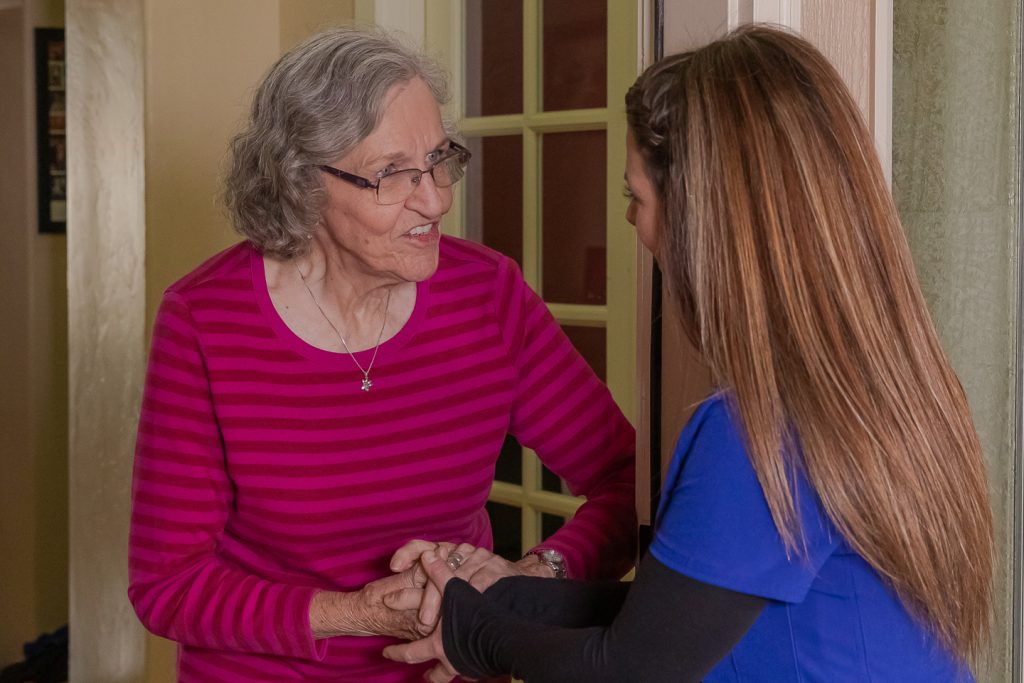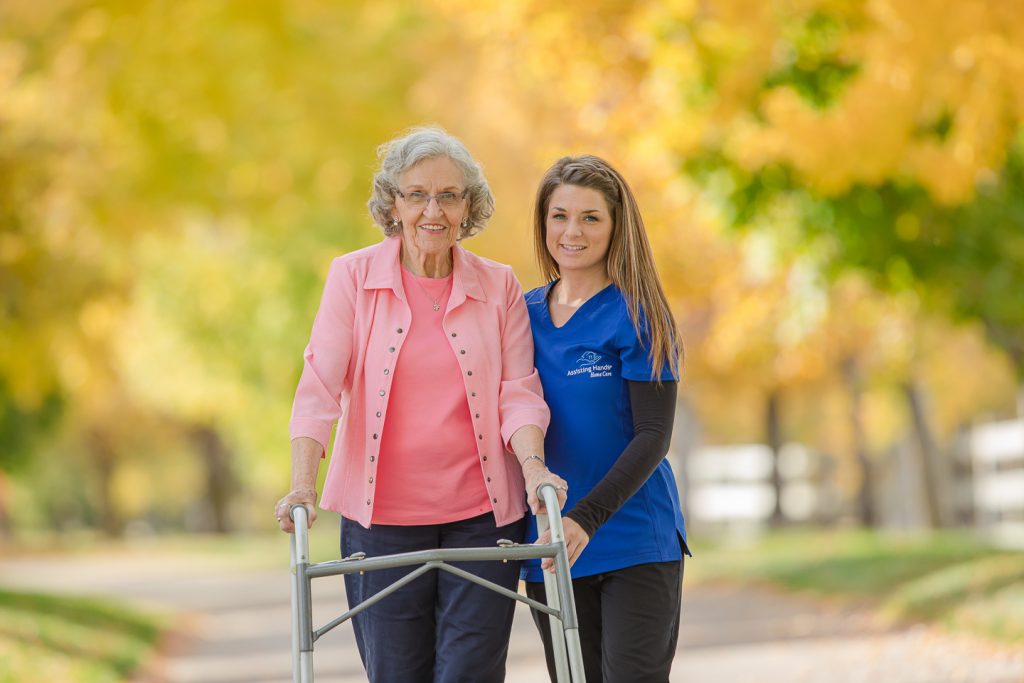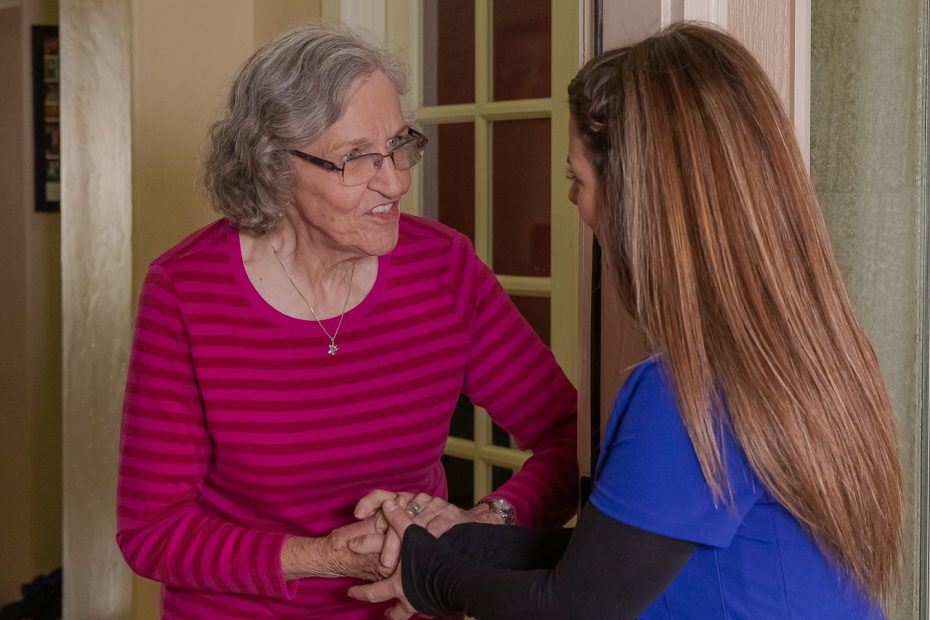
Providing continuous care to an elderly loved one is a demanding task. Professional caregivers are the solution to exhausted family caregivers. Families need breaks, making respite care ideal. Introducing the new caregiver into the senior’s life, however, can be almost as challenging as caregiving itself.
Professional caregivers provide seniors with daily, in-home help. Caregivers assist with discreet activities, such as bathing, toileting and grooming. Receiving support with such intimate tasks can prompt feelings of vulnerability in the elderly loved one—and outside help is immediately rejected.
Or, the aging senior may believe the family is no longer willing to provide the needed support. Feeling unwanted can spur instant disrespect for non-family caregivers. The senior might resort to blatantly refusing help from the new and well-meaning professional caregiver.
Inviting a new caregiver, who is at first a stranger, into the home can also be concerning for families and seniors with trust issues. Allowing a new professional to care for a loved one in his or her home is a personal decision, one that should be carefully arrived at.
1. Discuss the idea of a caregiver
Introducing a professional caregiver first starts with broaching the topic early on with the elderly loved one. Suggest the new professional will serve as a type of housekeeper, especially if the senior opposes the idea of a caregiver. The senior is more likely to accept a housekeeper than a caregiver.
If the senior is still resistant, approach the idea of introducing in-home help in other ways. Inform the senior that a professional will ease the family caregiver’s workload. Also propose that a skilled professional will help the elderly individual continue to live an independent lifestyle.
2. Include the senior in the interview
The next step in introducing a new professional into the senior’s daily life is to include everyone involved in the hiring process. Both the family and senior (if she is able to participate) should be present during the interview to determine the caregivers’ compatibility, character and trustworthiness.
A compatible caregiver is the key to both immediate and long-term success. Working with a home care agency is ideal for most families—prior to dispatching a caregiver, the agency evaluates the level of care needed and the senior’s lifestyle, preferences and personality.
A home care agency often matches a professional caregiver who shares a similar cultural background, language and interests with the care recipient. A senior who once avidly golfed, for instance, may be more welcoming to a caregiver who shares an affinity for the sport and who can discuss the game.
Families with an elderly loved one who suffers from dementia may find that involving the senior in the hiring decision can complicate matters. Dementia patients’ moods and abilities change throughout the day, so keep these limitations in mind when scheduling an interview with a potential caregiver.
3. Facilitate a smooth transition
Once a compatible caregiver is hired, give the senior plenty of space to ease into the new situation. A family may request caregiving services once or twice a week to start. The family member should be present during those first few hours to instruct the caregiving professional on typical routines.
When the new caregiver begins, the elderly loved one will feel more comfortable with a relative present. As the professional assumes a few responsibilities and the senior experiences the benefits, the latter will likely warm up to the idea of a new caregiver and request further care services.
The relationship between a new caregiver and care recipient will take time to develop. A promising caregiver will make the effort to build a connection with the senior through initiating conversations about shared interests or pursuing hobbies with the elderly individual.
4. Remain involved in care
A family’s responsibility toward an elderly loved one does not stop once a suitable professional caregiver arrives. Families should establish a working relationship with the caregiver. Frequent communications with the caregiver about the senior’s changing care needs and updates on wellbeing are critical.
At the same time, families must assess how well the senior is adjusting to the new caregiver. Engage in regular discussions with the senior and make in-person visits. When misunderstandings arise, families have an established channel of communication to resolve issues.
By remaining involved in the loved one’s care, families will be able to accurately assess how well the caregiver is working out. In some cases, the personality or skills may not be a perfect match. Home care agencies are willing to work with families until a good fit is found.
Despite discussing the possibility of a new caregiver and allowing an adequate adjustment period, some seniors may still adamantly refuse help. Families may respond by letting the senior know extra in-home help is always available. At the same time, families should set limits on their abilities to help.

Considering that the majority of elderly individuals prefer to age in the comfort of home, hiring in-home help from Assisting Hands Home Care will satisfy both the family and senior. Our teams of skilled caregivers are trained to identify and meet all the nonmedical needs of seniors in our care.
Families benefit from our dependable respite care services. Family members experience relief from caregiving duties, while the senior continues to receive quality care. We also offer post-surgical care, hospice care, overnight care and live-in care. Our care services are flexible and accommodating.
In addition to providing support with the activities of daily living, Assisting Hands Home Care providers offer guidance on issues surrounding elder care. We educate families and their loved ones on estate planning, Medicare benefits, advanced directives and senior social events, among other relevant topics.
Assisting Hands Home Care is a reliable resource for families in need of high-quality senior care. Our professional caregivers support seniors living in Oak Brook, Illinois, and the surrounding communities in DuPage and Cook counties. Schedule a complimentary in-home consultation to start dignified elder care.
















